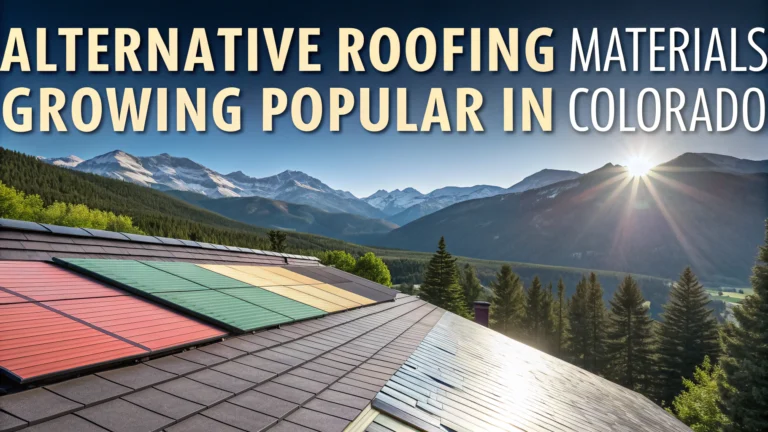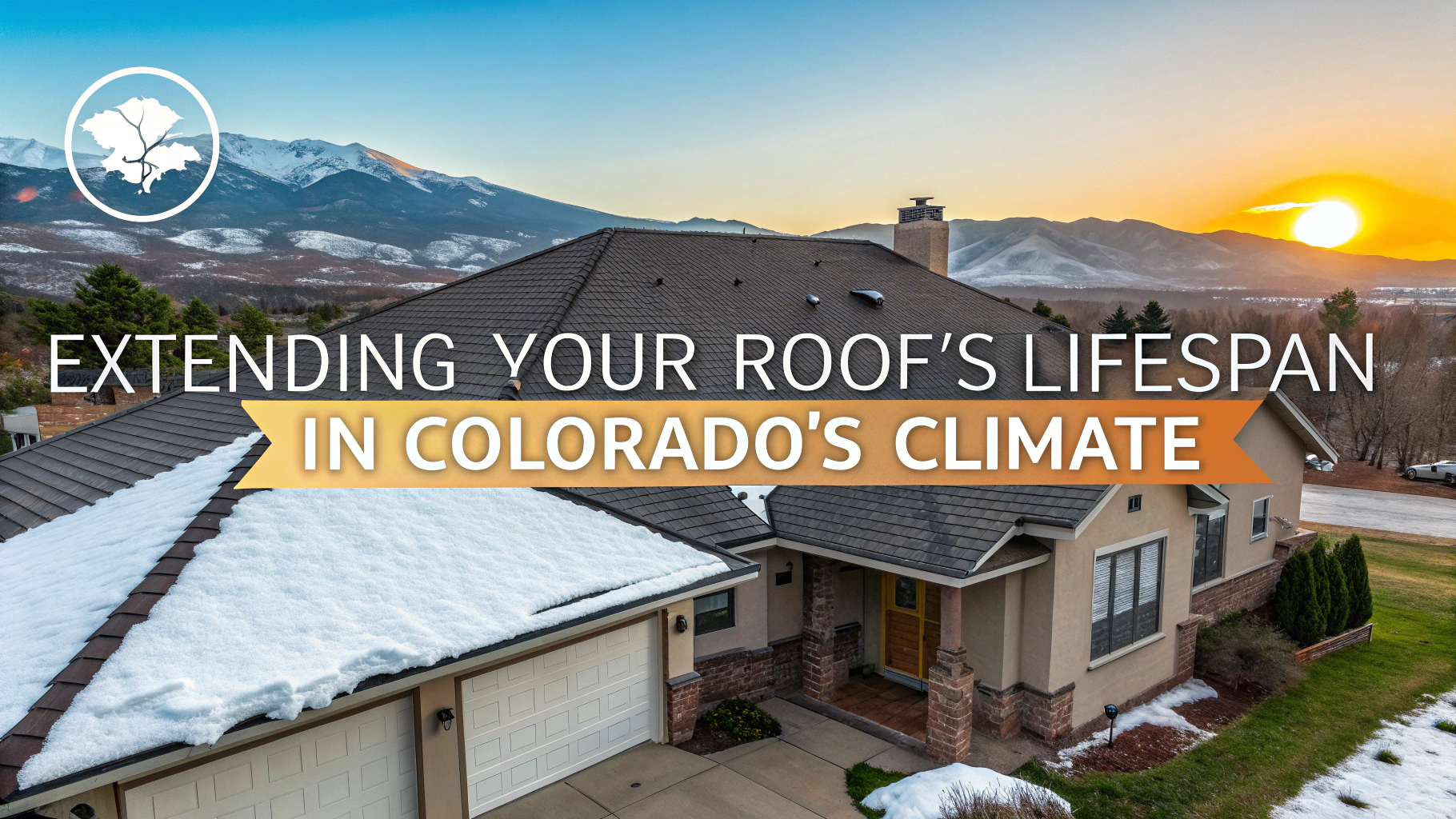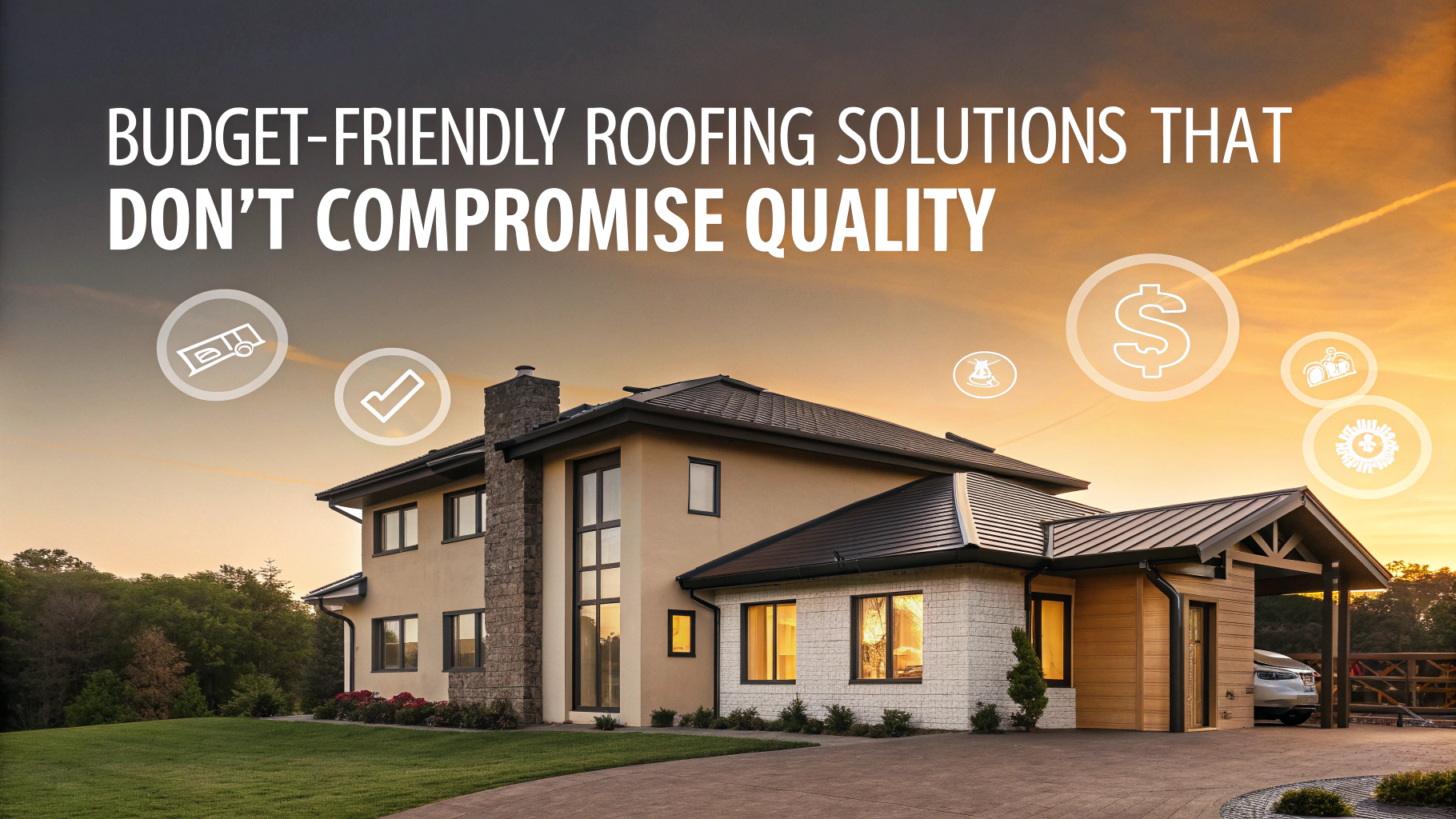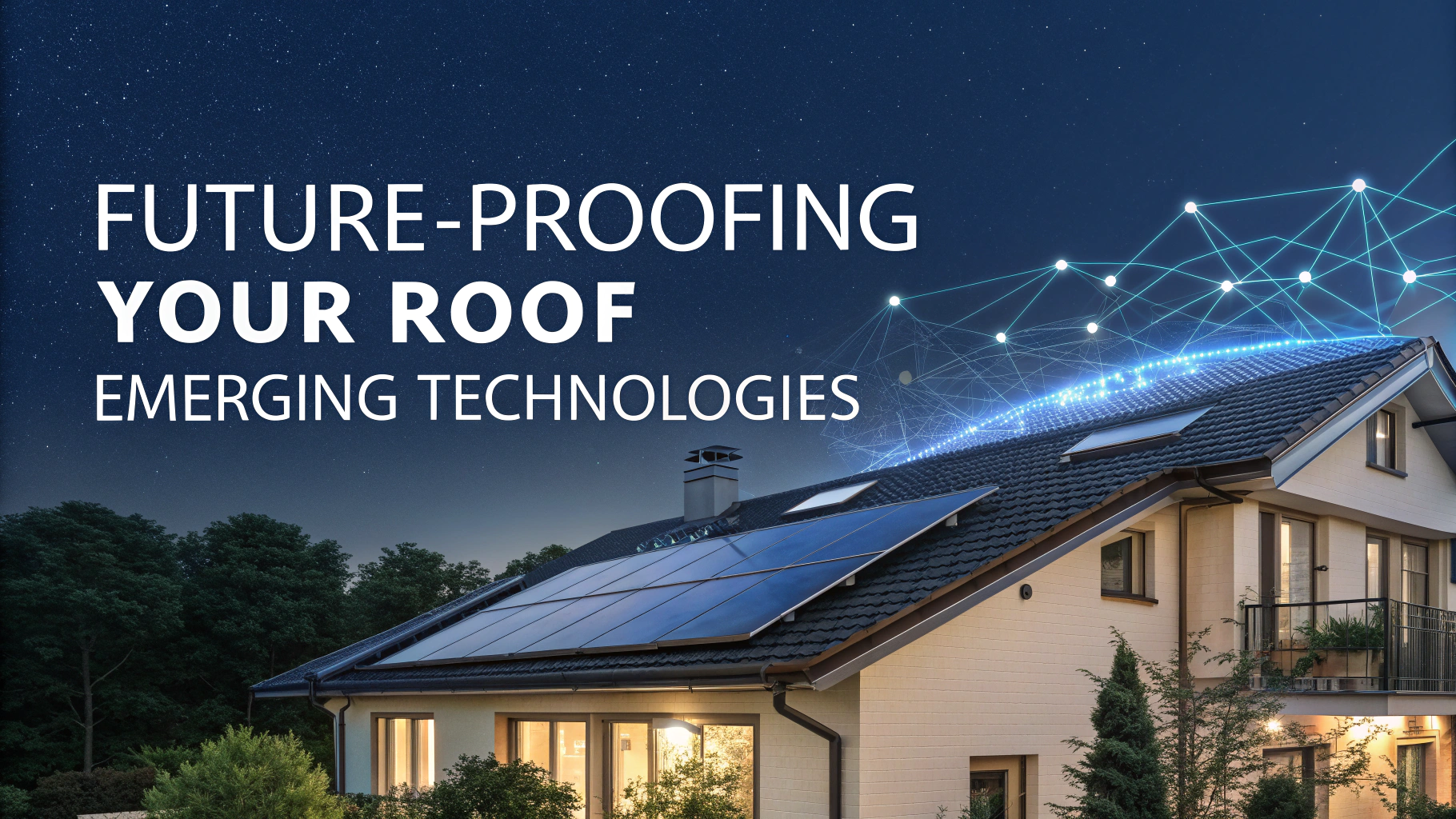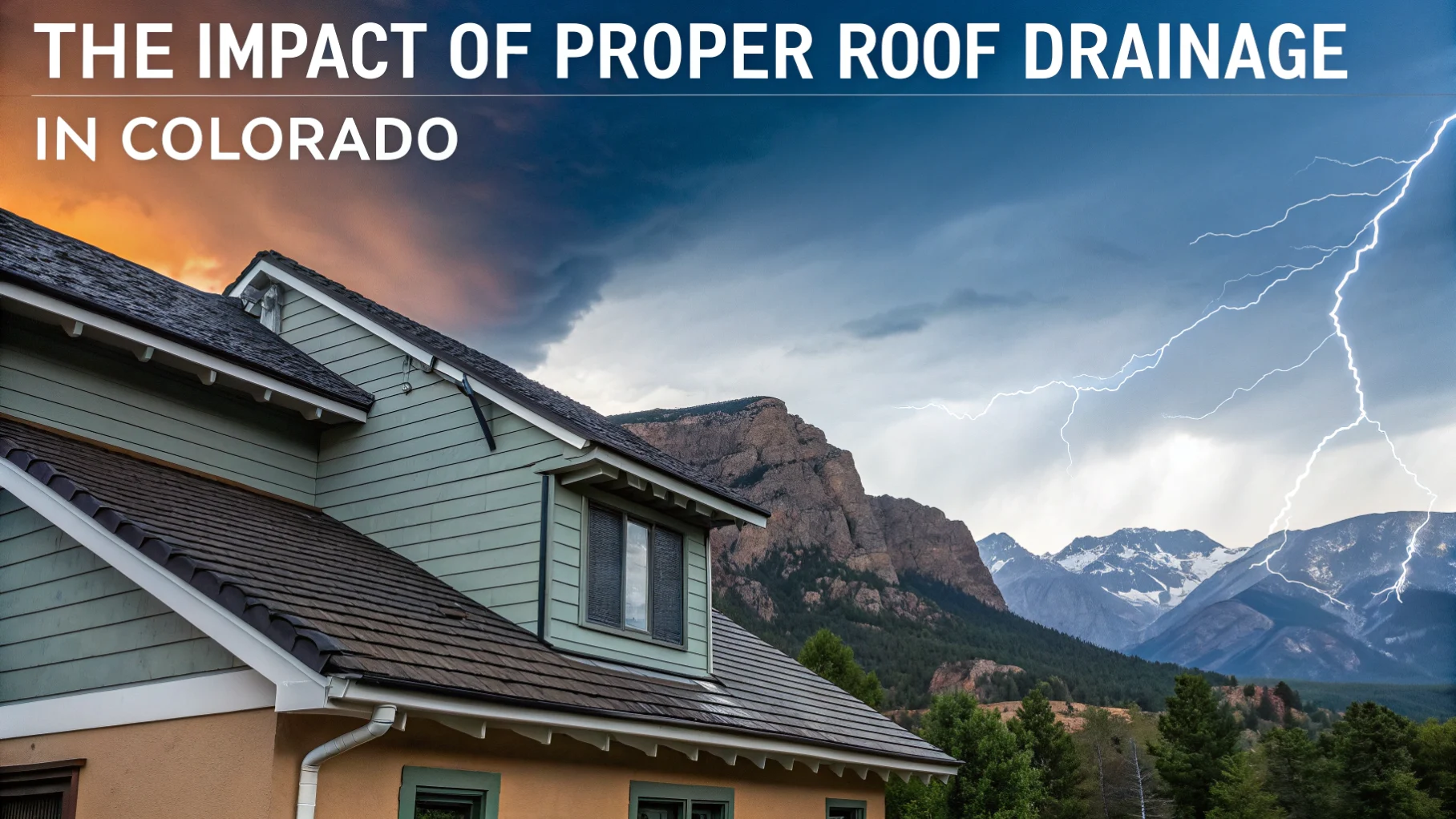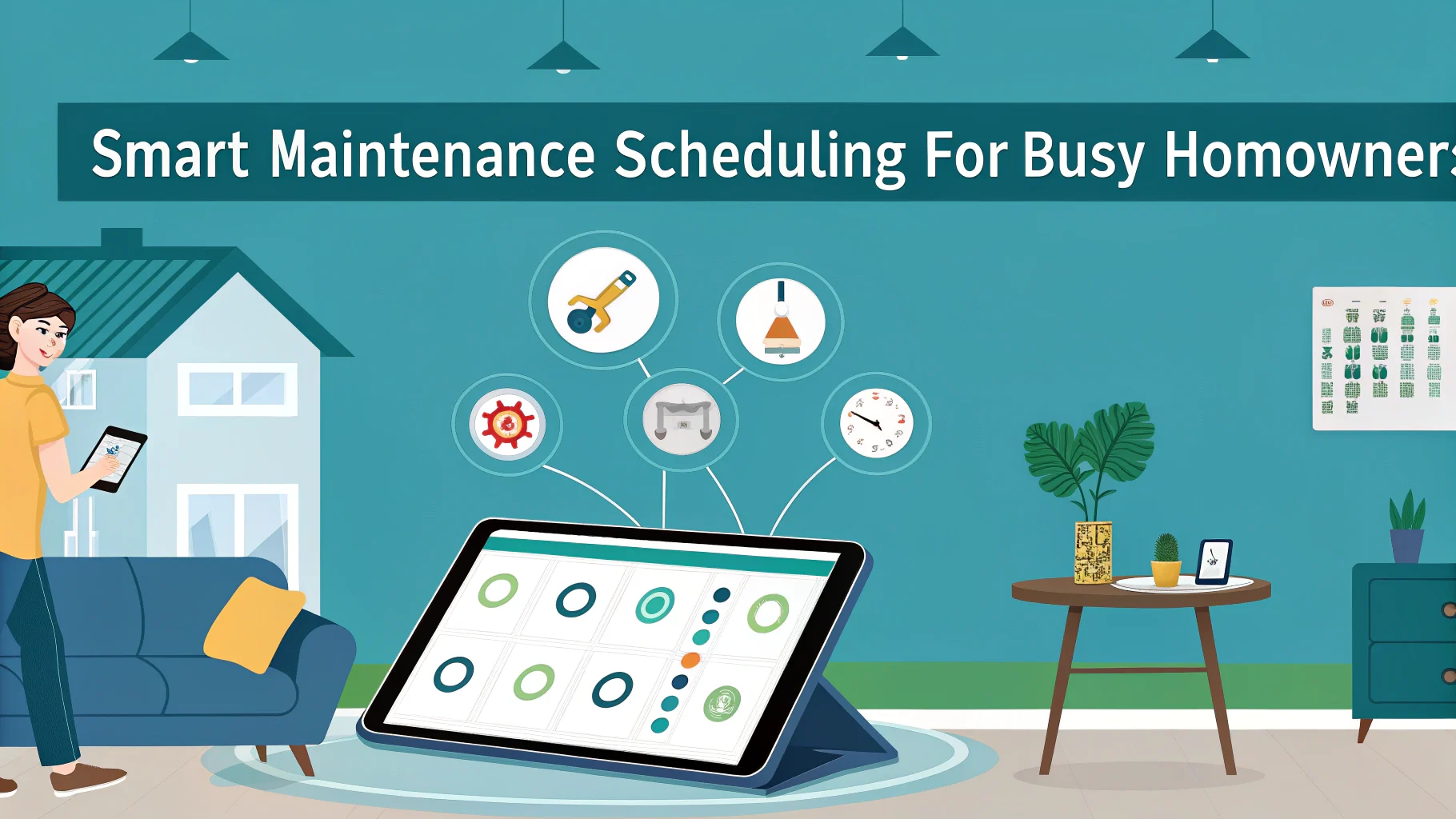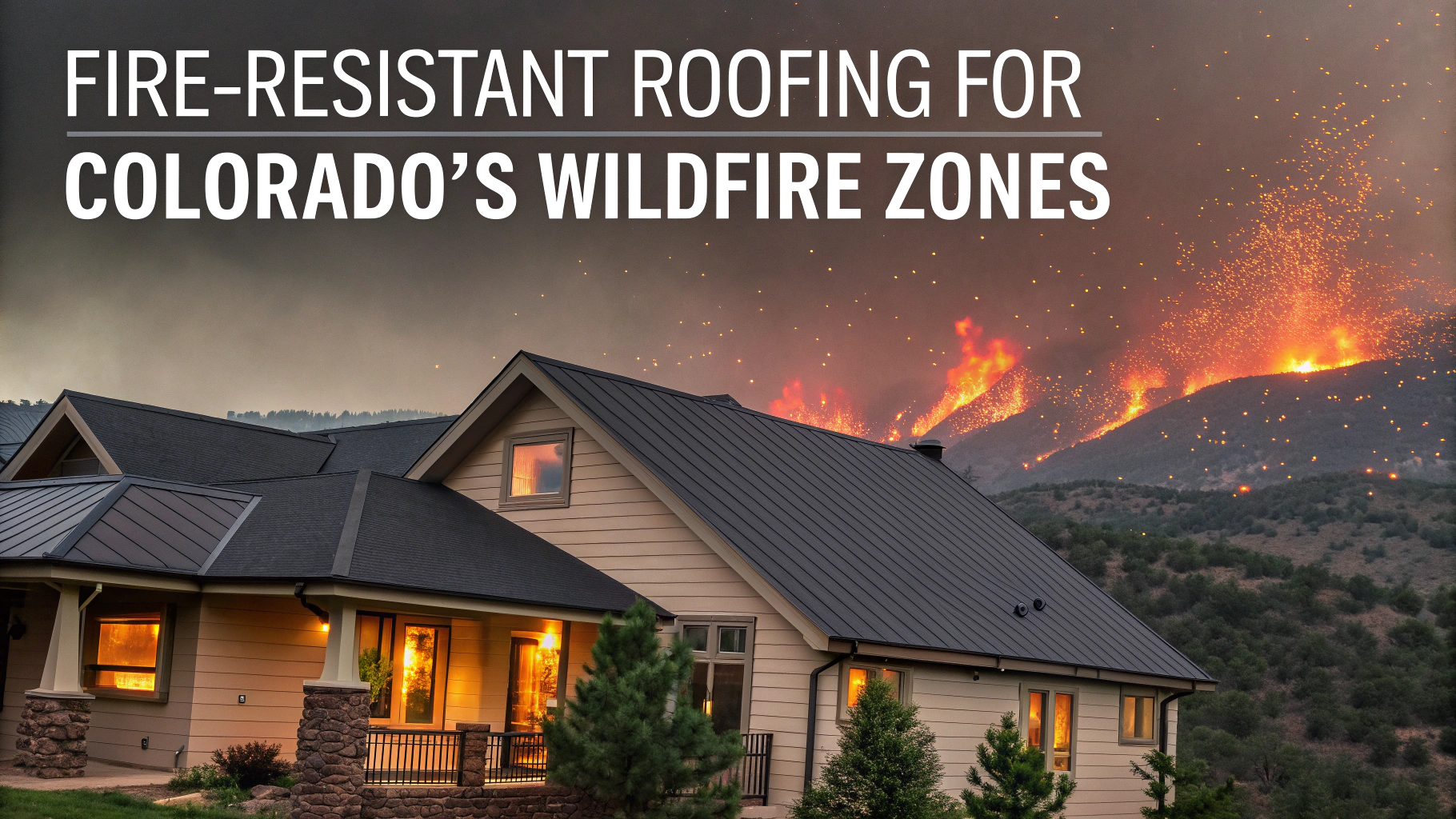Colorado homeowners are exploring alternative roofing materials due to the state’s unique climate challenges and increasing focus on sustainability.
From metal panels to recycled composites, these innovative solutions offer enhanced durability against Colorado’s harsh weather conditions while reducing environmental impact.
This guide explores the most effective alternative roofing options for Colorado homes, considering factors like durability, energy efficiency, and local building codes.
Popular Alternative Roofing Materials
- Metal Roofing
- Lasts 40-70 years
- Excellent snow shedding properties
- Energy-efficient in summer
- Cost: $10-14 per square foot installed
- Synthetic Slate
- Made from recycled materials
- Lighter than natural slate
- 50+ year lifespan
- Cost: $9-12 per square foot installed
- Solar Tiles
- Generate electricity while protecting your home
- Seamless integration with existing roof design
- 25-30 year warranty
- Cost: $20-25 per square foot installed
Climate Considerations
Colorado’s varying elevation zones require different roofing approaches based on local weather patterns.
| Region | Recommended Material | Key Benefit |
|---|---|---|
| Front Range | Metal | Hail resistance |
| Mountain Areas | Synthetic Slate | Snow load capacity |
| Western Slope | Solar Tiles | High sun exposure |
Installation Tips
Professional installation is essential for alternative roofing materials to perform effectively.
- Choose a contractor certified in your specific roofing material
- Verify local building codes and HOA restrictions
- Schedule installation during optimal weather conditions
- Request detailed warranty information
Cost Analysis
While alternative materials cost more upfront, long-term savings often justify the investment.
- Energy savings: $200-500 annually
- Insurance premium reductions: 5-15%
- Increased home value: 6-8%
- Reduced maintenance costs over time
Local Resources
Contact these organizations for additional information:
- Colorado Roofing Association: (303) 484-0549
- Denver Building Department: (720) 865-2705
- Colorado Solar Energy Industries Association: (303) 333-7342
Making Your Roofing Decision
Select your roofing material based on your specific location, budget, and long-term property goals.
Consider scheduling consultations with multiple certified contractors to compare options and quotes.
Remember to factor in maintenance requirements and warranty terms when making your final decision.
Maintenance Requirements
Each alternative roofing material requires specific maintenance routines to ensure optimal performance and longevity.
- Metal Roofing Maintenance
- Annual inspection for loose fasteners
- Cleaning gutters to prevent debris buildup
- Check for surface scratches or dents
- Repaint every 20-30 years if desired
- Synthetic Slate Care
- Bi-annual debris removal
- Inspect for cracked or loose tiles
- Clean algae growth as needed
- Check underlayment integrity every 5 years
- Solar Tile Upkeep
- Quarterly panel cleaning
- Monitor energy production levels
- Check electrical connections annually
- Clear snow accumulation in winter
Environmental Impact
Alternative roofing materials offer significant environmental benefits compared to traditional options.
- Reduced landfill waste through longer lifespans
- Lower carbon footprint during production
- Energy efficiency improvements
- Recyclable at end-of-life
Future-Proofing Your Colorado Home
Investing in alternative roofing materials positions your home for long-term sustainability and value appreciation. Consider your local climate conditions, budget constraints, and environmental goals when selecting your roofing solution.
Work with certified professionals to ensure proper installation and maintain regular maintenance schedules to maximize your roof’s performance and lifespan.
By choosing the right alternative roofing material, you’re not just protecting your home – you’re investing in Colorado’s sustainable future.
FAQs
- What are the most popular alternative roofing materials in Colorado?
Metal roofing, synthetic slate, recycled rubber shingles, concrete tiles, and solar tiles are increasingly popular alternatives to traditional asphalt shingles in Colorado. - Why are Colorado homeowners switching to alternative roofing materials?
Colorado homeowners choose alternative materials due to extreme weather conditions, hail resistance, longevity, energy efficiency, and environmental sustainability concerns. - How do metal roofs perform in Colorado’s climate?
Metal roofs excel in Colorado’s climate by withstanding heavy snow loads, high winds, and hail. They typically last 40-70 years and offer superior fire resistance, which is crucial in wildfire-prone areas. - What are the benefits of synthetic slate roofing in Colorado?
Synthetic slate offers durability, UV resistance, and aesthetic appeal while being lighter and more affordable than natural slate. It also performs well in extreme temperature fluctuations common in Colorado. - Are solar tiles worth the investment in Colorado?
Solar tiles are often worth the investment in Colorado due to the state’s 300+ days of sunshine annually, available tax incentives, and long-term energy cost savings. - How do recycled rubber roofing materials handle Colorado winters?
Recycled rubber roofing materials provide excellent insulation, are impact-resistant, and maintain flexibility in cold temperatures, making them suitable for Colorado’s harsh winters. - What maintenance is required for alternative roofing materials in Colorado?
Most alternative roofing materials require minimal maintenance compared to traditional asphalt shingles, typically needing only annual inspections and occasional cleaning of debris. - How do alternative roofing costs compare to traditional materials in Colorado?
Alternative roofing materials generally have higher upfront costs but offer better long-term value through increased durability, lower maintenance costs, and potential energy savings. - Which alternative roofing materials are best for Colorado’s high-altitude areas?
Materials like metal and synthetic slate are ideal for high-altitude areas due to their resistance to UV radiation, high winds, and heavy snow loads. - Do alternative roofing materials meet Colorado’s building codes?
Yes, most alternative roofing materials meet or exceed Colorado’s building codes, particularly regarding fire resistance, wind uplift, and impact resistance requirements.
